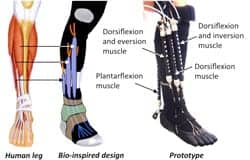
These cells are also known to trigger both the beneficial and detrimental effects in response to neurological trauma. The University of Bristol news release states that the cells react in a number of different ways when the brain is subject to injury or disease, including a change in shape. In the lab, the research team cultured astrocytes in a dish and were able to make them change shape by manipulating the proteins that control actin.
The researchers also changed the shape by mimicking the environment that the cells would be exposed to during a stroke. By transforming the shape, the team found that significant changes in cell shape were caused by controlling the actin cytoskeleton in the in vitro stroke model. In addition, the researchers also identified protein molecules that control this process, which suggest a complex mechanism is involved.
Jonathan Hanley, PhD, from the University’s School of Biochemistry, says, “Our findings are crucial to our understanding of how the brain responds to many disorders that affect millions of people every year. Until now, the details of the actin-based mechanisms that control astrocyte morphology were unknown, so we anticipate that our work will lead to future discoveries about this important process.”
Source: University of Bristol





